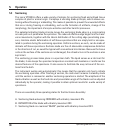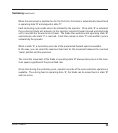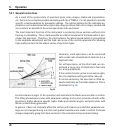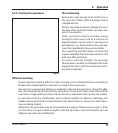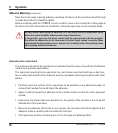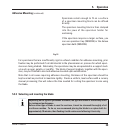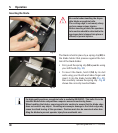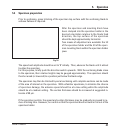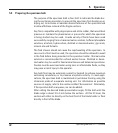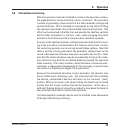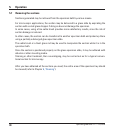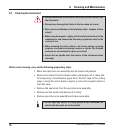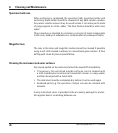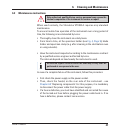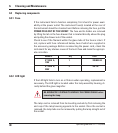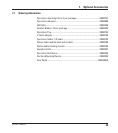
43
Leica VT1000 A
After the specimen has been trimmed to create a flat specimen surface,
the preparations for actual sectioning can be carried out. The procedure
consists of generating a few sections at the final parameter settings and
section thickness. This is intended to compensate for the effect of lifting
the specimen described in the section entitled "General instructions". This
effect can be observed in that the first, and possibly the next few, sections
will be either nonexistent or too thin. Later, when changing from thick
sections to much thinner sections, the procedure should be repeated.
As soon as the optimal parameter settings have been determined accord-
ing to the procedure recommended in the "General instructions" section,
the sectioning operation can be carried out with these settings. Note that
while a section is being generated, the parameter settings must not be
varied, otherwise the thickness may also vary within the section. Note
also that the section thickness may be increased (by turning in the clock-
wise direction) only after the sectioning blade has passed the specimen
while reversing. If the rotary knob for section thickness is turned counter-
clockwise, a subsequent compensation for the inner play is required (see
the section on "Adjusting the height of the specimens").
Because the instrument operation is semi-automatic, the operator only
has to initiate each sectioning cycle. The instrument will then complete
the section, unattended if desired, and return to the rearmost "ready"
position. With an increase in the speed setting, the blade can be moved
quickly from the "ready" position towards the specimen. In this case, a
sufficient "braking distance" should be provided to slow down the blade to
the preset feed rate before it touches the specimen.
The lamp/magnifier assembly may be used to facilitate close observation
of the specimen during sectioning.
5.6 Conventional sectioning
5. Operation



